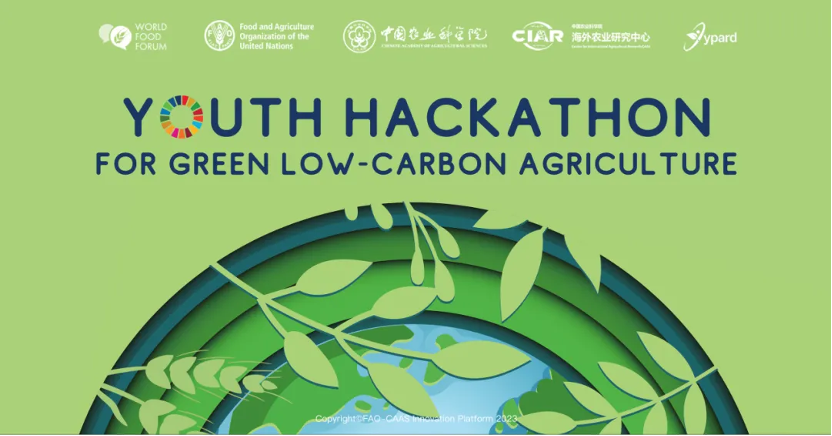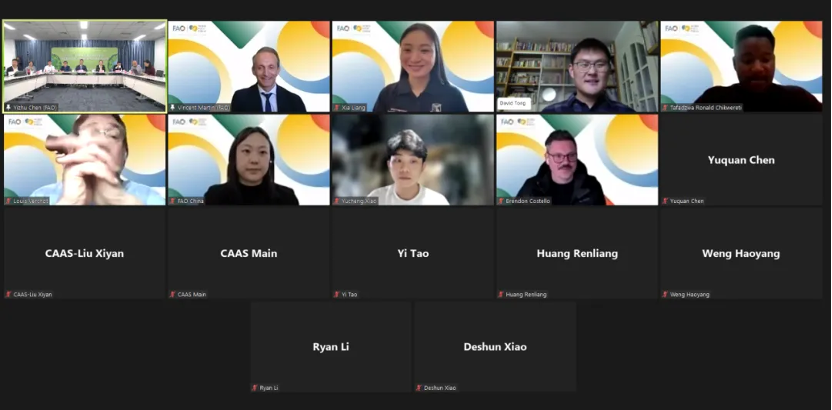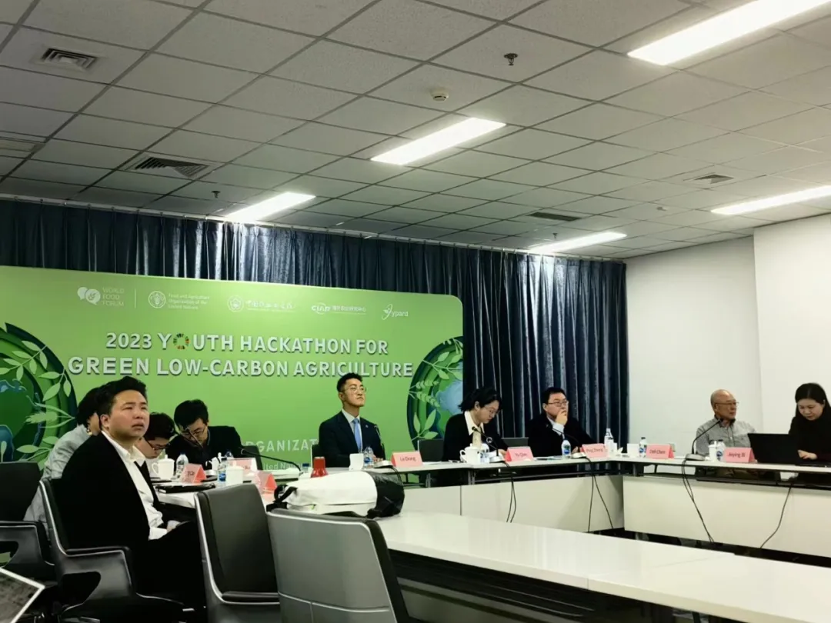Hackathon | The Successful Conclusion of the 2023 Youth Hackathon on Green Low-Carbon Agriculture
Following the success of the 2022 Youth Hackathon on Food Waste Reduction, the United Nations Food and Agriculture Organization (FAO) and the Chinese Academy of Agricultural Sciences (CAAS) jointly organized the second Youth Hackathon in 2023. This edition focused on "Green Low-Carbon Agriculture," aiming to enhance youth awareness of emission reduction, dual-carbon goals, and sustainable development in agriculture. The event encouraged young individuals to contribute innovative and inclusive solutions to global green, low-carbon agricultural development. Multiple stakeholders, including research institutions, universities, non-governmental organizations, businesses, and new agricultural practitioners, were urged to participate. On October 17, Beijing time, the FAO Representation in China, the Dapartment of International Cooperation of CAAS, CIAR of CAAS, and the Global Youth Forum for Agricultural Development jointly hosted the finals of the "2023 Green Low-Carbon Agriculture Youth Hackathon" (2023 Youth Hackathon GLCA). The event was simultaneously broadcast globally as part of the World Food Forum activities. Eighteen teams that successfully advanced to the finals competed fiercely for the first, second, and third prizes in the categories of "New Technology," "New Services," and "New Tracks."
Vincent Martin, Director of Innovation at the FAO, attended the opening ceremony and delivered a speech. He expressed the FAO's high appreciation for the innovative ideas presented by the younger generation in support of sustainable agricultural development. Green low-carbon agriculture is a crucial tool in addressing global challenges such as food security, climate change, and sustainable development. By reducing carbon emissions, improving resource utilization efficiency, and protecting ecosystems, green low-carbon agriculture contributes to the sustainable development of global agriculture while promoting food security and ecological balance.
Esteemed guests from various organizations served as judges for the finals, including Louis Verchot, Head of the Low Emissions Cereal Systems Initiative at the International Union for Conservation of Nature (IUCN), Deli Chen, Fellow of the American Society of Agronomy and the Soil Science Society of America, Benjamin Abugri, Chief Knowledge Management Officer at the Forum for Agricultural Research in Africa (FARA), Ping Zhong, Director of the Global Environmental Affairs Department at the China Center for Agenda 21, Deputy Director Xue Yinghao of the Agricultural Green Development Evaluation Center at the Agricultural Ecology and Resources Protection Station of the Ministry of Agriculture and Rural Affairs, Yu Qian, Deputy Director of the International Cooperation Bureau at CAAS, Chief Scientist Hong Cao from New Hope Group, and Jian Li, Director of Climate Change and Sustainability Services at Deloitte China. The judging committee evaluated the teams comprehensively based on technological innovation, business viability, environmental impact, and team professionalism.
The results of this year's finals will be announced at the Global Leaders' Agricultural Science and Technology Summit (GLAST) on October 26.







